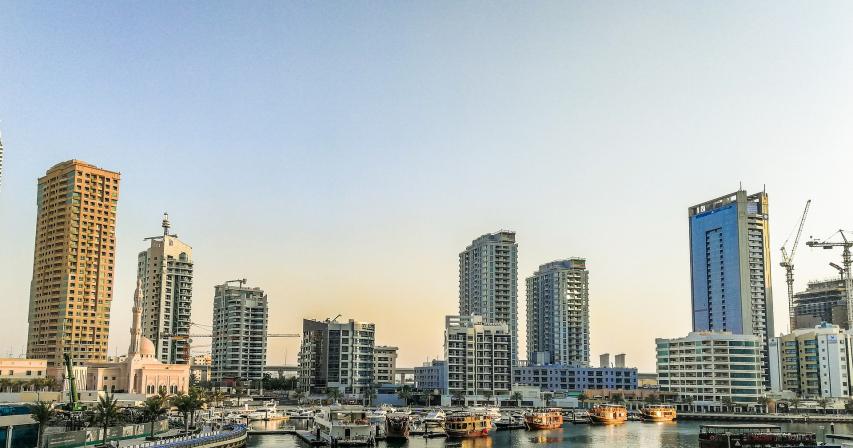The VAT on Real Estate in the Middle East
- 4 years ago

The Value Added Tax, also known as VAT, is a tax incurred on consumption or use of goods and services for each transaction. Across the Middle East, the standard rate of VAT is fixed at 5%. The VAT paid by customers is collected and accounted for by the registered businesses in the Middle East on behalf of the government. The total VAT amount is then paid to the government, that helps to contribute to the government revenue.
The VAT on properties in the Middle East
As of now, residential property owners need not pay VAT. They are exempted from VAT payments in Middle East.
A 5% VAT applies to all commercial properties in the Middle East. Landlords and tenants are obliged to pay a VAT amount for the property at some point during various transactions.
According to the Federal Tax Authority, the sale of a commercial property is subject to VAT payment in the following manner:
1. If the property was never rented by the landlord, the Seller charges VAT amount to the Buyer. However, this VAT amount can be refunded if he has a registered VAT.
2. If the property was rented in the past and then sold for less than AED 375,000 and the Buyer is not a taxable person, then the Seller charges the VAT and the Buyer pays the VAT amount.
3. If the property is rented or partially rented and then sold to a taxable person, then the Seller does not charge VAT, and the Buyer does not pay any VAT amount.
The VAT paid for services to maintain a property such as maintenance cost, electricity, and water cannot be recovered.
The Developers of a property should register for VAT. The property developers in Middle Eastshould register for VAT. Though they have to sell the property without charging any VAT amount, They can recover the VAT they paid after the sale. the buyers or sellers do not have to pay any VAT amount.
If a building is purchased for more than AED 5m, this will be a capital asset, and the buyer will be subject to 5% VAT, which he can recover on the tax return.
Types of Commercial Properties that are subject for VAT
Commercial properties consist of both rented and sold offices, retails, or any property that explicitly mentions to be a part of commercial property and not a residential property.
If the landlord and the tenant are non-residents, they have to still pay the 5% VAT. In such situations, the landlord has to register for VAT as the property is in the Middle East.
Any free incentives provided by the owner; the VAT can be charged.
A movable property that is detached from the ground is considered as a commercial property.
A hotel or a hotel serviced apartment can charge VAT
If a residential property is rented out for a short term to non-residents then it can be considered as a commercial property.
Reclaiming VAT
The VAT can only be reclaimed by the taxpayer.
A request for VAT refunds can be filed on the Federal Tax Authority website.
The authorities will take approximately 20 days to approve your claim if you are eligible for the refund. The taxpayer will receive the refund within 5 days from approval
The taxpayer must fulfill certain other conditions to be eligible for a refund, such as:
The taxpayer should have a business registered under VAT.
The VAT invoices must be presented to the authorities as a proof, for claiming a refund.
The taxpayer should claim for a refund within 6 months of the purchase.
Filing for a VAT return in the Middle East
A VAT return must be submitted to the Federal Tax Authority (FTA) at the end of each tax period.
The taxpayer should ensure that the VAT accounting is accurately performed and the VAT return requirements are met. To ensure correct results, the taxpayer should appoint VAT Consultants and Accountants in Dubai.
The VAT return can be filed online through the FTA portal.
Comments